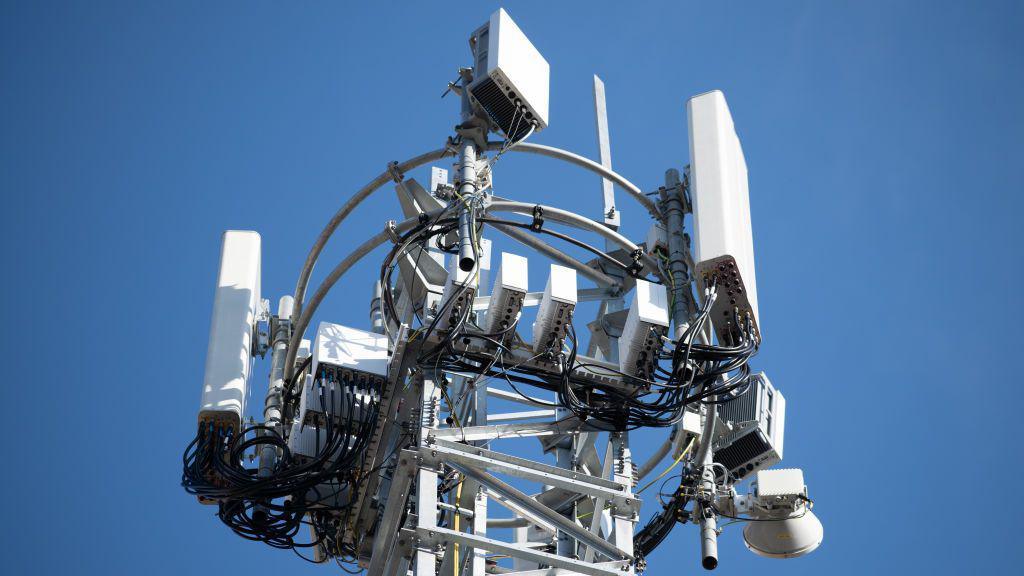'Conspiracy-driven' network may be behind 5G mast attacks

5G (fifth generation) masts carry the signals for the superfast internet technology
- Published
A network of "conspiracy-driven" individuals may be behind an escalating series of arson attacks on 5G masts which has caused £4m worth of damage, police have said.
On Tuesday, a 44-year-old man appeared in court charged with arson with intent to destroy after a mast was set alight in west Belfast at the weekend.
Darren Clarke, of no fixed abode, appeared before Belfast Magistrates' Court via video link from Musgrave police station.
On Sunday, firefighters extinguished the blaze at the mast off the Whiterock Road, at the junction of Brittons Parade.
Belfast Magistrates' Court heard police spotted a man wearing dark clothing, a head torch and carrying a backpack a short time later on Divis Drive.
The suspect rode off on a bicycle and was chased into Milltown Cemetery on the Falls Road.
A Police Service of Northern Ireland (PSNI) detective told the court the defendant was arrested inside the graveyard, smelling strongly of either fuel or nail polish.
The detective also said that a range of footage relating to 5G masts was found on Mr Clarke's phone.
Police described the act as "extremely reckless and dangerous", adding that it was putting people "at serious risk".
'Not the work of a single individual'
An investigating detective said the incident on Sunday had been linked to a wider series of 18 arson attacks on 5G masts across west Belfast since 2023, with the attacks anticipated to cost "in the region of £4m".
The court heard nine masts had been targeted since June 2025 as part of an escalation in the campaign.
The detective added: "There were multiple videos of 5G masts burning… (and) more videos on his phone which show he may be involved in planning the destruction of masts.
"These attacks are not the work of a single individual, but have been carried out by a number of individuals as part of a network, or possibly united by sharing conspiracy-driven beliefs online via social media chatrooms."
Concerns were also expressed about a potential risk to life if emergency services cannot be contacted due to poor phone signals.
"The scale and frequency of the attacks make this a matter of significant public interest and community safety," the detective added.
Mr Clarke's barrister argued that the alleged conspiracy views about the masts could possibly provide him with a defence at any future prosecution.
"All he would have to prove is whether he had a reasonable belief at the time," Michael Halleron said.
"That could be complete nonsense, looking at it objectively, but it is all on the basis of his subjective belief."
A judge at Belfast Magistrates' Court said there was no prospect of bail.
Mr Clarke was remanded in custody and is due to appear again in court next month.